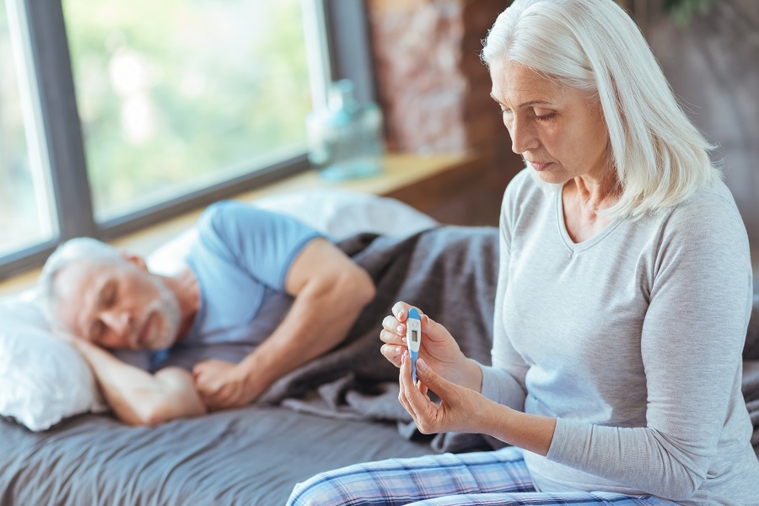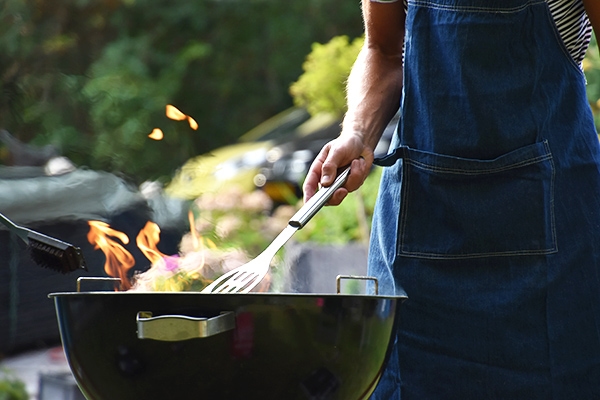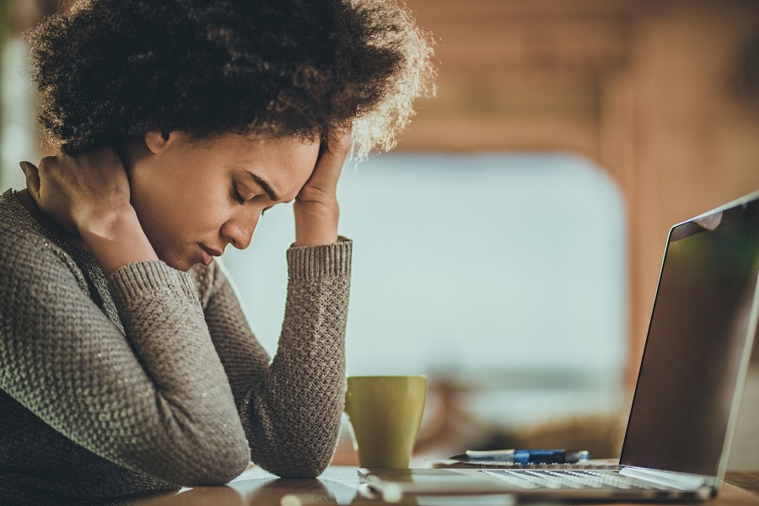Diabetes and COVID-19: What to do if you get sick
Nov 30, 2020

Severe illness from COVID-19 is more likely in people who have certain underlying medical conditions. One of these is type 2 diabetes. According to the Centers for Disease Control and Prevention (CDC), it's possible that people with type 1 or gestational diabetes are at higher risk too.
And the danger goes both ways. Being sick may also make it harder for people with diabetes to control their blood sugar.
So if you have diabetes, it's a good idea to know what to do in case you get sick.
Plan ahead in case of illness
That means making sure you always have plenty of insulin—and groceries—for at least the week ahead. Be sure you're stocked up on supplies of simple carbohydrates—like regular soft drinks, honey, jam, gelatin dessert, hard candies or frozen pops. These can help keep your blood sugar up in case you feel too sick to eat.
You should also keep plenty of glucagon and ketone strips on hand, as well as rubbing alcohol and soap to wash your hands.
Also, talk with your doctor ahead of time about what steps to take if you start to feel unwell. Ask questions like:
- How often should I check my blood sugar?
- When should I check for ketones?
- Should I make any changes in my diabetes medications?
If you do get sick
The first thing to do if you suspect you have COVID-19 is to call your doctor's office. They will tell you what to do next—such as where and how to get tested.
If you have COVID-19, you'll need to manage your blood sugar as well as possible. These tips may help:
- Keep taking your diabetes medicines as usual, or follow your doctor's advice.
- Stay hydrated. If you're having a hard time keeping water down, try taking small sips every 15 minutes or so.
- Follow your doctor's advice about how often to check your blood sugar. If you use a continuous glucose monitor, keep in mind that some devices are affected by acetaminophen. You may need to do finger sticks to ensure you're getting the right readings.
- If your blood sugar is low, eat 15 grams of simple carbs. Confirm that your blood sugar is on the rise with a 15-minute recheck.
- If your blood sugar is high more than two times in a row, check your urine for ketones. If ketones are present, call your doctor's office right away. You may need to go to the emergency room to be treated for diabetic ketoacidosis.
- Wash your hands often. And clean your injection and finger-stick sites with rubbing alcohol or soap and water.
Is it an emergency?
According to CDC, you should go to the emergency room if:
- You're having trouble breathing
- You have moderate to high ketone levels in your urine
- You can't keep liquids down for more than four hours
- You lose 5 pounds or more while sick
- Your blood sugar is lower than 60 mg/dL
- You are too sick to eat normally and can't keep food down for more than 24 hours
- You have vomiting or severe diarrhea for more than six hours
- Your temperature is above 101 degrees for 24 hours
- You feel sleepy or can't think clearly. If this is the case, call 911 or ask someone else to drive you
Additional source: American Diabetes Association
Related articles

What the End of the COVID-19 Public Health Emergency Means for Your Healthcare
May 23, 2023

What to consider when choosing to gather
July 2, 2020

Managing mental health during a pandemic: Q&A with Dr. Gary Hoffman
October 6, 2020